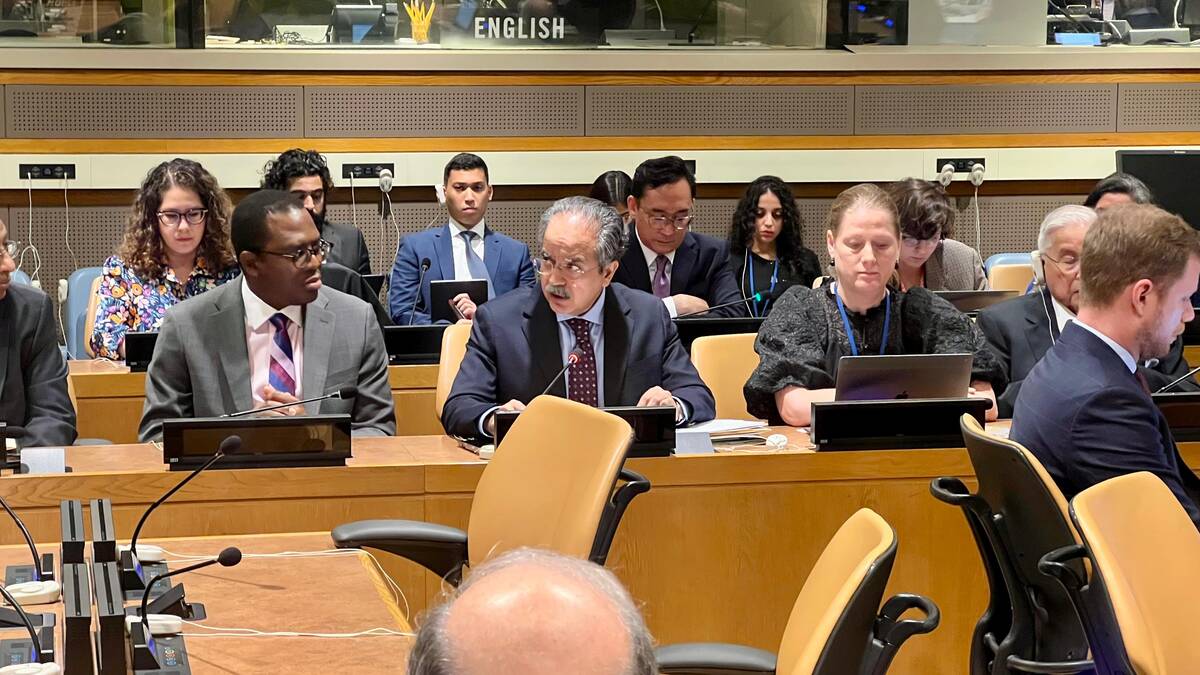KABUL/PESHAWAR: A Pakistani paramilitary soldier was injured in firing on the border between Pakistan and Afghanistan, a Pakistani official said on Monday, a day after the Afghan Taliban closed the main crossing at Torkham.
Afghan authorities have said they closed crossing on Sunday over Pakistan’s alleged refusal to facilitate trade transport and Afghan patients going to the neighboring country for treatment.
On Monday, officials on both sides as well as residents reported an exchange of gunfire, in which a Pakistani official said one Frontier Corps soldier was injured.
"One FC soldier is reportedly injured slightly," Irshad Mohmand, assistant commissioner of the border town of Landikotal in Khyber district, told Arab News.
He did not provide any details of why the firing erupted or who started it.
“It's calm now, the ceasefire is intact and the gate is closed for all sorts of vehicular and pedestrian movement,” Mohmand added.
Cross-border skirmishes between the two countries have resulted in many civilian casualties in recent months, with both Kabul and Islamabad blaming each other for the violence.
Akbar Khan Afridi, a senior police officer, confirmed the exchange of gunfire on Monday morning.
“Right now, tension is high at Torkham border but I don’t know how and what triggered the gun fire,” the police official said. “The gate is closed right now. Now it is up to Islamabad and Kabul to calm down the tension and return to normalcy through diplomatic channels.”
The Torkham border crossing, a key point of transit for travelers and goods, is located in Pakistan’s northwestern Khyber Pakhtunkhwa province and the eastern Afghan province of Nangarhar.
“Doors have been shut down due to some issues,” Qazi Mullah Adil, the spokesman for the governor of Nangarhar province, told Arab News. “There were a lot of problems when Afghans were traveling.”
He added: “There was no clash, only one gunfire (exchange) took place, nothing else.”
Sedidullah Quireshi, deputy spokesman of Nangarhar’s information and culture department, said the crossing point had been closed as the Pakistani side was not meeting “their commitments.
“They had promised to provide facilities for trade transport and patients. Thus, the gateway has been shut down on the directions of our leadership,” he told Arab News, adding that the closure was temporary.
“Talks are underway with Pakistani authorities regarding the issue.”
Residents also reported hearing gunfire.
“Monday morning, Pakistani security forces started firing from their check posts towards the Afghan side,” a resident of the Afghan town of Torkham, told Arab News.
Asghar Khan, a Pakistani customs clearing agent at the Torkham crossing, said he heard “intense gunshots early on Monday morning.
Firing began from the Afghan side, he said, where Taliban border officials were “infuriated” when Pakistani officials denied entry to people accompanying an Afghan patient, saying he did not have the required travel documents.
Since the Taliban takeover in August 2021 Pakistan has allowed critically ill or injured Afghans to enter the country for medical treatment, though, like many other countries, it still does not recognize Afghanistan’s Taliban government.


















